- Home
- Daniel Defoe
The Life and Adventures of Robinson Crusoe (1808) Page 2
The Life and Adventures of Robinson Crusoe (1808) Read online
Page 2
wife and family, and to him money to pay hisfine and the expense of his discharge. Gratitude and fidelity areinseparable from an honest man; and it was this benevolent act thatprompted De Foe to support Harley, with his able and ingenious pen, whenAnne lay lifeless, and his benefactor in the vicissitude of party waspersecuted by faction, and overpowered, though not conquered,by violence.
The talents and perseverance of De Foe began now to be properlyestimated, and as a firm supporter of the administration, he was sentby Lord Godolphin to Scotland, on an errand which, as he says, was farfrom being unfit for a sovereign to direct, or an honest man to perform.His knowledge of commerce and revenue, his powers of insinuation, andabove all, his readiness of pen, were deemed of no small utility, inpromoting the union of the two kingdoms; of which he wrote an ablehistory, in 1709, with two dedications, one to the Queen, and another tothe Duke of Queensbury. Soon afterwards he unhappily, by some equivocalwritings, rendered himself suspected by both parties, so that he oncemore retired to Newington in hopes of spending the remainder of his daysin peace. His pension being withdrawn, and wearied with politics, hebegan to compose works of a different kind.--The year 1715 may thereforebe regarded as the period of De Foe's political life. Faction henceforthfound other advocates, and parties procured other writers to disseminatetheir suggestions, and to propagate their falsehoods.
In 1715 De Foe published the "Family Instructor;" a work inculcating thedomestic duties in a lively manner, by narration and dialogue, anddisplaying much knowledge of life in the middle ranks of society."Religious Courtship" also appeared soon after, which, like the "FamilyInstructor," is eminently religious and moral in its tendency, andstrongly impresses on the mind that spirit of sobriety and privatedevotion for which the dissenters have generally been distinguished. Themost celebrated of all his works, "The Life and Adventures of RobinsonCrusoe," appeared in 1719. This work has passed through numerouseditions, and been translated into almost all modern languages. Thegreat invention which is displayed in it, the variety of incidents andcircumstances which it contains, related in the most easy and naturalmanner, together with the excellency of the moral and religiousreflections, render it a performance of very superior and uncommonmerit, and one of the most interesting works that ever appeared. It isstrongly recommended by Rosseau as a book admirably calculated topromote the purposes of natural education; and Dr. Blair says, "Nofiction, in any language, was ever better supported than the Adventuresof Robinson Crusoe. While it is carried on with that appearance of truthand simplicity, which takes a strong hold of the imagination of allreaders, it suggests, at the same time, very useful instruction; byshewing how much the native powers of man may be exerted for surmountingthe difficulties of any external situation." It has been pretended, thatDe Foe surreptitiously appropriated the papers of Alexander Selkirk, aScotch mariner, who lived four years alone on the island of JuanFernandez, and a sketch of whose story had before appeared in the voyageof Captain Woodes Rogers. But this charge, though repeatedly andconfidently brought, appears to be totally destitute of any foundation.De Foe probably took some general hints for his work from the story ofSelkirk, but there exists no proof whatever, nor is it reasonable tosuppose that he possessed any of his papers or memoirs, which had beenpublished seven years before the appearance of Robinson Crusoe. As afarther proof of De Foe's innocence, Captain Rogers's Account of Selkirkmay be produced, in which it is said that the latter had neitherpreserved pen, ink, or paper, and had, in a great measure, lost hislanguage; consequently De Foe could not have received any writtenassistance, and we have only the assertion of his enemies to prove thathe had any verbal.
The great success of Robinson Crusoe induced its author to write anumber of other lives and adventures, some of which were popular intheir times, though at present nearly forgotten. One of his latestpublications was "A Tour through the Island of Great Britain," aperformance of very inferior merit; but De Foe was now the garrulous oldman, and his spirit (to use the words of an ingenious biographer) "likea candle struggling in the socket, blazed and sunk, blazed and sunk,till it disappeared at length in total darkness." His laborious andunfortunate life was finished on the 26th of April, 1731, in the parishof St. Giles's, Cripplegate.
Daniel De Foe possessed very extraordinary talents; as a commercialwriter, he is fairly entitled to stand in the foremost rank among hiscontemporaries, whatever may be their performances or their fame. Hisdistinguishing characteristics are originality, spirit, and a profoundknowledge of his subject, and in these particulars he has seldom beensurpassed. As the author of Robinson Crusoe he has a claim, not only tothe admiration, but to the gratitude of his countrymen; and so long aswe have a regard for supereminent merit, and take an interest in thewelfare of the rising generation, that gratitude will not cease toexist. But the opinion of the learned and ingenious Dr. Beattie will bethe best eulogium that can be pronounced on that celebrated romance:"Robinson Crusoe," says the Doctor, "must be allowed by the most rigidmoralist, to be one of those novels which one may read, not only withpleasure, but also with profit. It breathes throughout a spirit of pietyand benevolence; it sets in a very striking light the importance of themechanic arts, which they, who know not what it is to be without them,are so apt to undervalue; it fixes in the mind a lively idea of thehorrors of solitude, and, consequently, of the sweets of social life,and of the blessings we derive from conversation and mutual aid; and itshews, how, by labouring with one's own hands, one may secureindependence, and open for one's self many sources of health andamusement. I agree, therefore, with Rosseau, that it is one of the bestbooks that can be put into the hands of children."
G.D.
THE
LIFE AND ADVENTURES
OF
ROBINSON CRUSOE,
&c. &c.
* * * * *
I was born in the year 1632, in the city of York, of a good family,though not of that country, my father being a foreigner of Bremen, whosettled first at Hull: he got a good estate by merchandise, and leavingoff his trade, lived afterwards at York, from whence he had married mymother, whose relations were named Robinson, a very good family in thatcountry, and from whom I was called Robinson Kreutznaer; but by theusual corruption of words in England, we are now called, nay we callourselves, and write our name Crusoe, and so my companions alwayscalled me.
I had two elder brothers, one of which was lieutenant-colonel to anEnglish regiment of foot in Flanders, formerly commanded by the famousColonel Lockhart, and was killed at the battle near Dunkirk against theSpaniards. What became of my second brother I never knew, any more thanmy father or mother did know what was become of me.
Being the third son of the family, and not bred to any trade, my headbegan to be filled very early with rambling thoughts: my father, who wasvery ancient, had given me a competent share of learning, as far ashouse education and a country free-school generally go, and designed mefor the law; but I would be satisfied with nothing but going to sea; andmy inclination to this led me so strongly against the will, nay thecommands of my father, and against all the entreaties and persuasions ofmy mother and other friends, that there seemed to be something fatal inthat propension of nature tending directly to the life of misery whichwas to befal me.
My father, a wise and grave man, gave me serious and excellent counselagainst what he foresaw was my design. He called me one morning into hischamber, where he was confined by the gout, and expostulated very warmlywith me upon this subject: he asked me what reasons more than a merewandering inclination I had for leaving my father's house and my nativecountry, where I might be well introduced, and had a prospect of raisingmy fortune by application and industry, with a life of ease andpleasure. He told me it was for men of desperate fortunes on one hand,or of aspiring superior fortunes on the other, who went abroad uponadventures, to rise by enterprise, and make themselves famous inundertakings of a nature out of the common road; that these things wereall either too far above me, or too far below me; that mine was themiddle state
, or what might be called the upper station of _low life_,which he had found by long experience was the best state in the world,the most suited to human happiness, not exposed to the miseries andhardships, the labour and sufferings of the mechanic part of mankind,and not embarrassed with the pride, luxury, ambition, and envy of theupper part of mankind, he told me, I might judge of the happiness ofthis state by this one thing, viz. that this was the state of life whichall other people envied; that kings have frequently lamented themiserable consequences of being born to great things, and wish they hadbeen placed in the middle of the two extremes, between the mean and thegreat; that the wise man gave his testimony to this as the just standardof true felicity, when he prayed to have neither poverty nor riches.
He bid me observe it, and I should always find, that the calamities oflife were shared among the upper and lower part

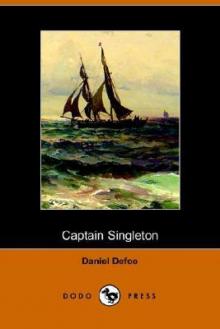 Captain Singleton
Captain Singleton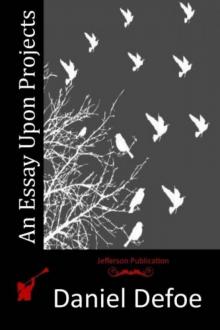 An Essay Upon Projects
An Essay Upon Projects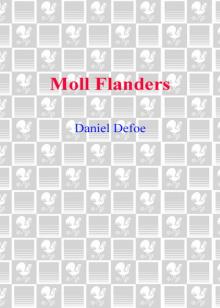 Moll Flanders Moll Flanders Moll Flanders
Moll Flanders Moll Flanders Moll Flanders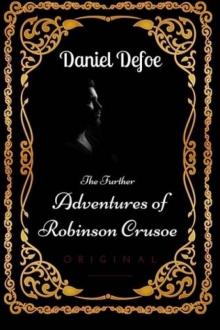 The Further Adventures of Robinson Crusoe
The Further Adventures of Robinson Crusoe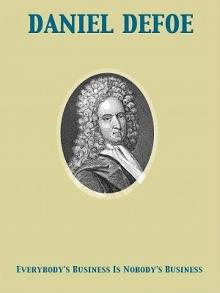 Everybody's Business Is Nobody's Business
Everybody's Business Is Nobody's Business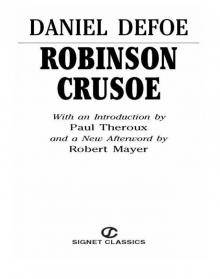 Robinson Crusoe
Robinson Crusoe The Storm
The Storm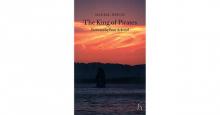 The King of Pirates
The King of Pirates History of the Plague in London
History of the Plague in London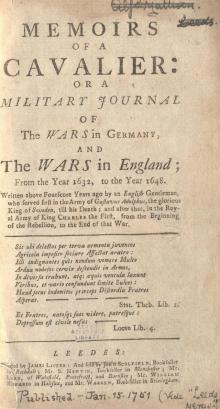 Memoirs of a Cavalier
Memoirs of a Cavalier_preview.jpg) The Life and Most Surprising Adventures of Robinson Crusoe, of York, Mariner (1801)
The Life and Most Surprising Adventures of Robinson Crusoe, of York, Mariner (1801)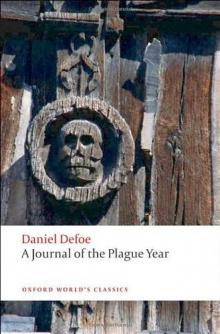 A Journal of the Plague Year
A Journal of the Plague Year_preview.jpg) The Life and Adventures of Robinson Crusoe (1808)
The Life and Adventures of Robinson Crusoe (1808)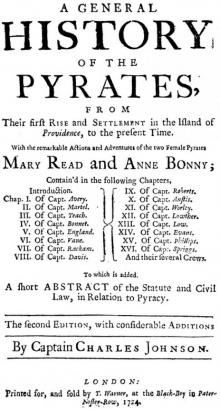 A General History of the Pyrates: / from their first rise and settlement in the island of Providence, to the present time
A General History of the Pyrates: / from their first rise and settlement in the island of Providence, to the present time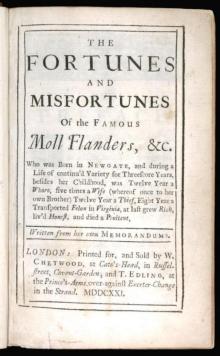 The Fortunes and Misfortunes of the Famous Moll Flanders
The Fortunes and Misfortunes of the Famous Moll Flanders_preview.jpg) The Fortunate Mistress (Parts 1 and 2)
The Fortunate Mistress (Parts 1 and 2)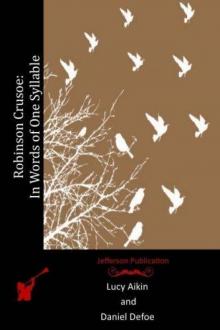 Robinson Crusoe — in Words of One Syllable
Robinson Crusoe — in Words of One Syllable From London to Land's End
From London to Land's End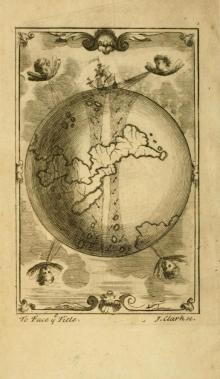 A New Voyage Round the World by a Course Never Sailed Before
A New Voyage Round the World by a Course Never Sailed Before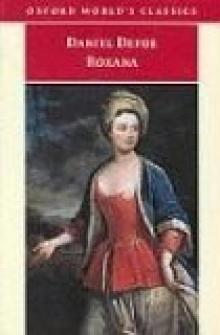 Roxana
Roxana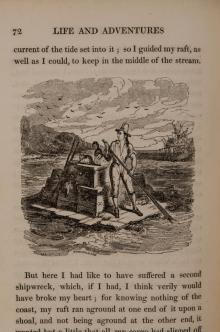 The Life and Adventures of Robinson Crusoe of York, Mariner, Volume 1
The Life and Adventures of Robinson Crusoe of York, Mariner, Volume 1_preview.jpg) Memoirs of Major Alexander Ramkins (1718)
Memoirs of Major Alexander Ramkins (1718)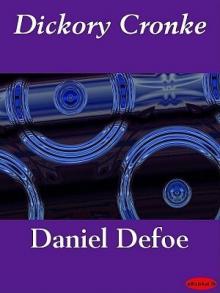 Dickory Cronke
Dickory Cronke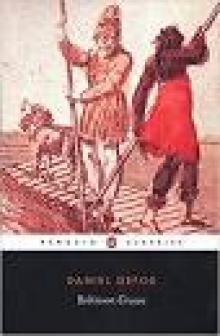 Robinson Crusoe (Penguin ed.)
Robinson Crusoe (Penguin ed.)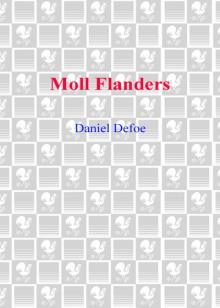 Moll Flanders
Moll Flanders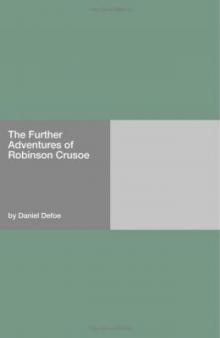 The Further Adventures of Robinson Crusoe rc-2
The Further Adventures of Robinson Crusoe rc-2